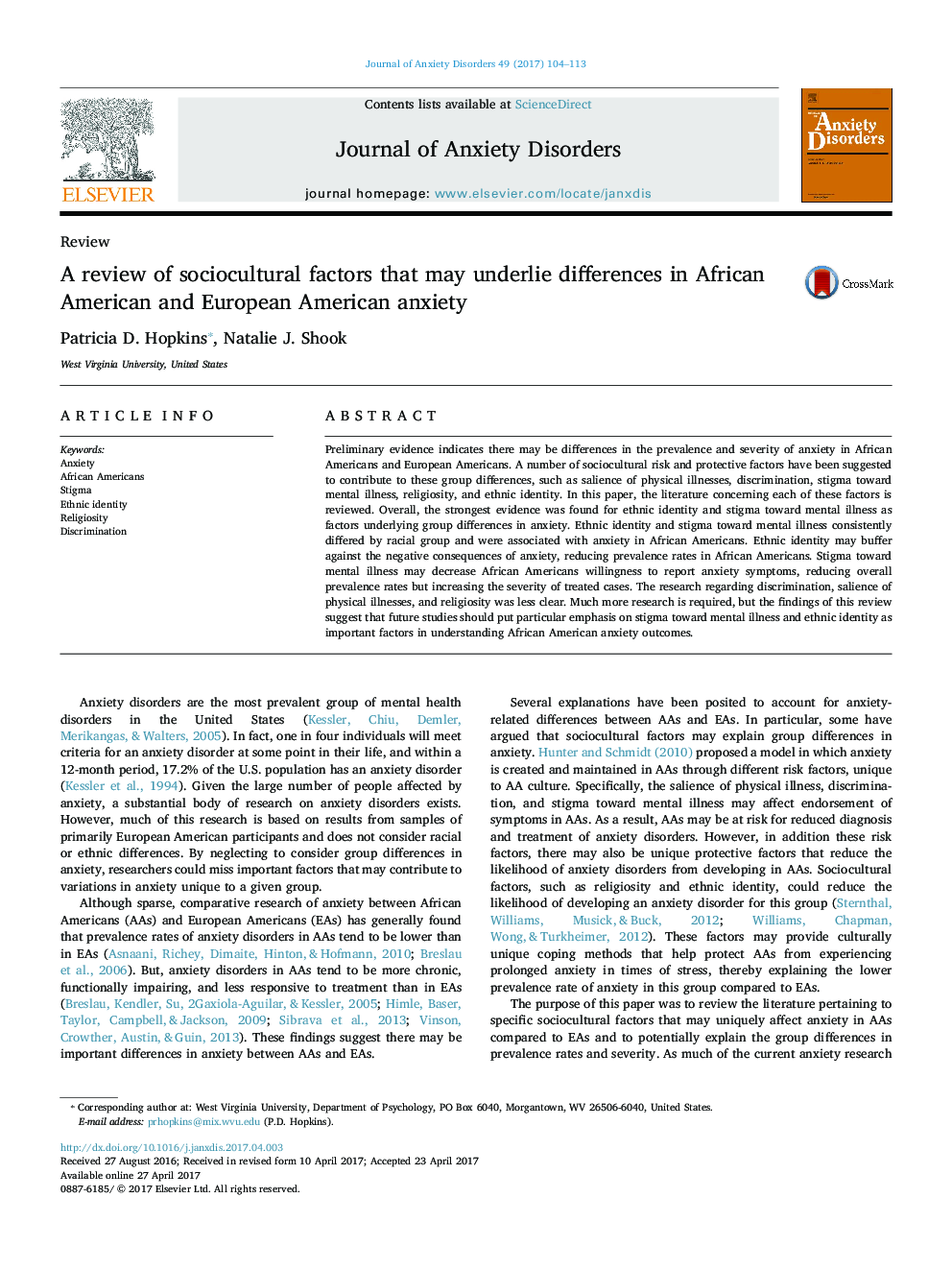| Article ID | Journal | Published Year | Pages | File Type |
|---|---|---|---|---|
| 5038901 | Journal of Anxiety Disorders | 2017 | 10 Pages |
â¢A variety of factors may affect anxiety outcomes in African Americans.â¢Ethnic identity appears to protect against anxiety in African Americans.â¢Stigma may decrease African Americans willingness to report anxiety.
Preliminary evidence indicates there may be differences in the prevalence and severity of anxiety in African Americans and European Americans. A number of sociocultural risk and protective factors have been suggested to contribute to these group differences, such as salience of physical illnesses, discrimination, stigma toward mental illness, religiosity, and ethnic identity. In this paper, the literature concerning each of these factors is reviewed. Overall, the strongest evidence was found for ethnic identity and stigma toward mental illness as factors underlying group differences in anxiety. Ethnic identity and stigma toward mental illness consistently differed by racial group and were associated with anxiety in African Americans. Ethnic identity may buffer against the negative consequences of anxiety, reducing prevalence rates in African Americans. Stigma toward mental illness may decrease African Americans willingness to report anxiety symptoms, reducing overall prevalence rates but increasing the severity of treated cases. The research regarding discrimination, salience of physical illnesses, and religiosity was less clear. Much more research is required, but the findings of this review suggest that future studies should put particular emphasis on stigma toward mental illness and ethnic identity as important factors in understanding African American anxiety outcomes.
